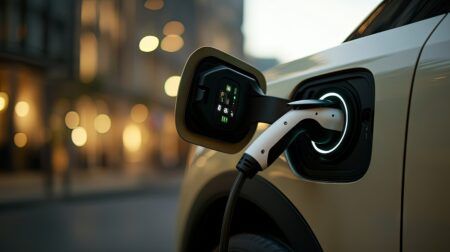The pressure to conform to new technology will trigger an exponential uptake of electric vehicles, says Erik Fairbairn, CEO of Pod Point, one of Europe’s largest providers of EV supply technology. Speaking at the Auto Futures event in London’s Canary Wharf, Fairbairn stated that societal pressures rather than advancement of technology could be the decisive factor to tip a nation towards 100% EV deployment.
“In Norway today approximately 60% of all new vehicles purchased are electric,” he says. “If you buy a non-EV your peer group starts to question why you are poisoning their air by making a particular vehicle choice. It’s like passive smoking. When laws about smoking changed in the UK, society very quickly shifted position, from accepting it to deeming it entirely unacceptable. This can be a huge motivating factor. Such pressures could mean a large percentage of people not wishing to be involved in a former technology once their peers start questioning their decision.”
Fellow panelist Natasha Patel, associate director at KPMG and co-lead of its Mobility 2030 group, revealed that her team predicts 70% of all cars and light commercial vehicle sales in the UK will be EV by the end of the decade. Fairbairn believes this number could be even higher due to the rate at which lithium ion batteries have decreased in price in the past ten years. He estimates that by the early-to-mid 2020s a 250-mile range EV could be purchased for £2,000-£3,000 (US$2,500-US$3,800) less than an internal combustion engine (ICE) vehicle and run at one fifth of the cost.
“Incremental vehicle changes have been in place for the past 100 years, with successive vehicles being a few percent better than the last,” he said. “With EVs we are heading towards disruptive change. These aren’t marginal gains but more like Netflix versus Blockbuster, new technology arriving very quickly and sweeping out the old. It may feel like incremental change with linear growth but I’m convinced it’s exponential.”




